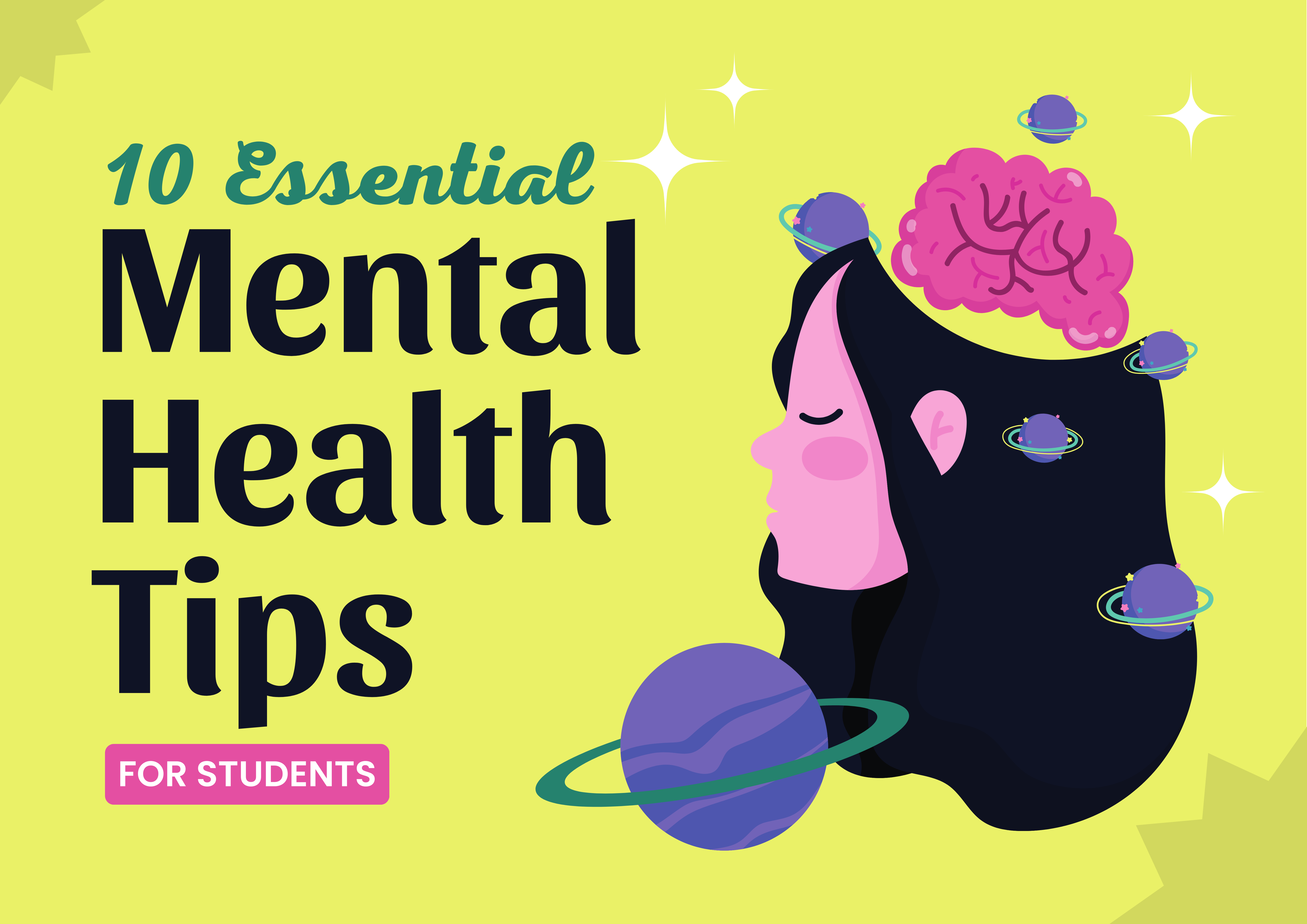Mental health tips for students are essential in today’s fast-paced academic environment, where students face immense pressure to excel in studies, manage extracurricular activities, and maintain a social life.
This constant juggling can lead to stress, anxiety, and even burnout. Prioritizing mental well-being is crucial not only for academic success but also for overall personal growth.
While mental health challenges affect students globally, institutions like Shri Ram Centennial School and other boarding schools in Dehradun emphasize structured wellness programs to provide a supportive environment.
However, personal efforts are equally important in maintaining a balanced mindset. This article explores ten essential mental health tips for students to help them manage stress effectively, enhance focus, and cultivate a healthier approach to academics and life.
10 Mental Health Tips for Students

1. Establish a Healthy Routine
A well-structured daily schedule provides stability and minimizes anxiety. Allocating specific times for studying, meals, exercise, and relaxation helps maintain balance.
Avoiding procrastination and following a timetable reduces last-minute stress before exams or assignments.
2. Prioritize Quality Sleep
Sleep deprivation negatively impacts memory, concentration, and emotional stability. Students should aim for 7–9 hours of sleep each night to enhance cognitive function.
Developing good sleep hygiene—such as avoiding screens before bedtime and maintaining a consistent sleep schedule—promotes mental well-being.
3. Practice Mindfulness and Meditation
:max_bytes(150000):strip_icc():focal(749x0:751x2)/chidren-meditating-tout-080524-5c56a603b3bc4c92b86b3bc929c63a49.jpg)
Mindfulness techniques, including meditation and deep breathing, are effective ways to manage stress. Studies suggest that practicing mindfulness for even 10 minutes a day improves focus and emotional resilience.
This simple habit can help students stay calm and improve their ability to handle academic pressure.
4. Stay Physically Active
Exercise releases endorphins, which are natural mood boosters. Engaging in regular physical activities like jogging, yoga, or even simple stretching exercises can enhance mental health.
Physical movement helps reduce stress, improve mood, and boost overall energy levels.
5. Limit Screen Time and Social Media Usage

Excessive screen time, especially on social media, can contribute to anxiety, sleep disturbances, and feelings of inadequacy.
Students should set boundaries on screen time and engage in offline activities like reading, outdoor games, or personal hobbies to maintain a healthy digital balance.
6. Set Realistic Goals
Many students experience stress due to unrealistic academic expectations. Setting achievable goals and breaking tasks into smaller, manageable steps prevents feelings of overwhelm.
Celebrating small victories along the way boosts motivation and confidence.
7. Build a Support System
A strong support network, including friends, family, teachers, or mentors, is essential for mental well-being. Talking about worries and stressors with a trusted person can provide reassurance.
Seeking emotional support prevents feelings of isolation and helps in stress management.
8. Develop Healthy Coping Strategies
Stress is an unavoidable part of student life, but how one manages it makes all the difference.
Instead of resorting to unhealthy habits like binge-eating, excessive caffeine consumption, or procrastination, students should adopt positive coping mechanisms like journaling, painting, or playing a musical instrument.
9. Seek Professional Help When Necessary

Recognizing when professional assistance is required is crucial for maintaining mental health. Many schools and universities offer counseling services where students can receive guidance.
Speaking with a mental health professional can provide effective strategies to deal with academic stress, anxiety, and personal challenges.
10. Practice Self-Compassion and Avoid Perfectionism
Many students place unnecessary pressure on themselves to achieve perfection. While striving for excellence is commendable, unrealistic expectations can lead to self-doubt and stress.
Practicing self-compassion, embracing mistakes as learning opportunities, and maintaining a balanced perspective can significantly improve mental well-being.
Why Mental Health Should Be a Priority for Students

Mental health plays a significant role in academic performance and personal growth. Students who prioritize their well-being tend to have better concentration, enhanced creativity, and improved emotional resilience.
Ignoring mental health issues can lead to long-term consequences, including anxiety disorders, depression, and burnout.
By following these mental health tips for students, individuals can develop a healthier approach to learning and personal development. Mental well-being is just as important as physical health, and small lifestyle changes can make a significant impact over time.
Conclusion
Academic pressure, social expectations, and personal challenges can take a toll on students’ mental well-being. However, implementing these mental health tips for students can significantly reduce stress and enhance focus.
Whether it’s setting a routine, practicing mindfulness, or seeking support, taking small steps toward mental well-being can create a lasting positive impact.
Taking care of mental health is a lifelong journey. Developing healthy habits early on helps students build resilience, achieve academic success, and lead a more fulfilling life.










